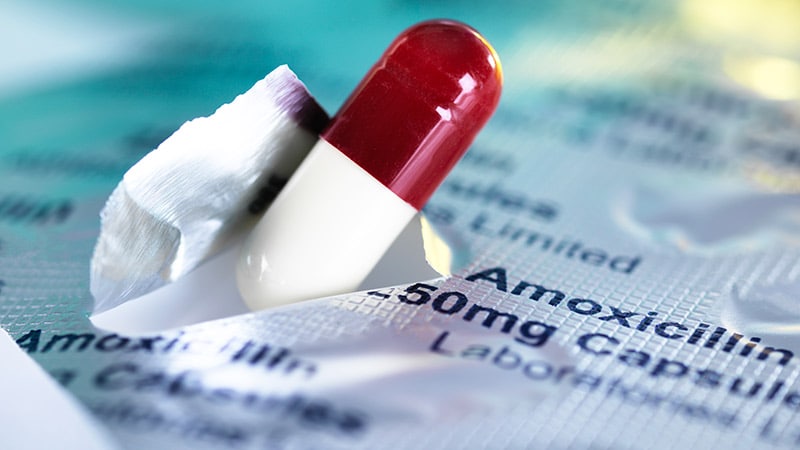Core Concepts
Antibiotic misuse is prevalent in Eurasia, highlighting gaps in public knowledge about antimicrobial resistance and the urgent need for awareness.
Abstract
The survey conducted in the Western Balkans, Caucasus, and Central Asia revealed that about a third of respondents used antibiotics without a prescription. The misuse was primarily for treating conditions like colds, sore throat, cough, and flu-like symptoms, which are often caused by viruses. Many respondents lacked knowledge about antimicrobial resistance (AMR), with misconceptions about the effectiveness of antibiotics against viruses. The study emphasized the importance of raising awareness about AMR and the responsible use of antibiotics, with healthcare professionals playing a crucial role in educating the public.
Without a Prescription: Antibiotic Misuse Common in Eurasia
Stats
About a third of people in the Western Balkans, Caucasus, and Central Asia used antibiotics without a prescription.
50% of respondents believed antibiotics are effective against colds, while 36% correctly stated it is false.
43% incorrectly believed antibiotics kill viruses, while 39% correctly said it is false.
An estimated 5 million deaths annually are associated with bacterial AMR worldwide.
More than 500,000 deaths occur in the WHO European Region due to AMR.
Quotes
"A lot of people don’t know what antimicrobial resistance is, and the word antimicrobial spans many kinds of medicines, [including] antivirals and antifungals." - Danilo Lo Fo Wong
"People go to doctors to seek help and get well. Evidence shows that people trust doctors and other healthcare professionals, making them the ideal gatekeepers for responsible use of antimicrobial medicines and messengers for raising awareness on AMR." - Danilo Lo Fo Wong
Key Insights Distilled From
by Moheb Costan... at www.medscape.com 11-27-2023
https://www.medscape.com/viewarticle/998797
Deeper Inquiries
How can public awareness about antimicrobial resistance be effectively increased beyond the surveyed regions?
To increase public awareness about antimicrobial resistance (AMR) beyond the surveyed regions, a multi-faceted approach is necessary. One key strategy is to leverage digital platforms and social media to disseminate information about AMR globally. Collaborating with international organizations such as the World Health Organization (WHO) and the United Nations (UN) can help in creating global campaigns to raise awareness about the consequences of antibiotic misuse. Additionally, incorporating AMR education into school curricula worldwide can ensure that future generations are well-informed about the issue. Engaging with pharmaceutical companies, healthcare providers, and policymakers on a global scale can also help in promoting responsible antibiotic use and combating AMR.
What are the potential drawbacks or limitations of relying solely on healthcare professionals to educate the public about antibiotic misuse?
While healthcare professionals play a crucial role in educating the public about antibiotic misuse, relying solely on them has certain limitations. One drawback is the time constraints faced by healthcare providers, which may limit the depth of information they can provide to patients. Additionally, not all healthcare professionals may have received adequate training in antimicrobial stewardship, which could affect the quality of education they provide. Moreover, some patients may not have regular access to healthcare services, making it challenging for healthcare professionals to reach all segments of the population. To address these limitations, a collaborative approach involving various stakeholders, including educators, policymakers, and community leaders, is essential to ensure comprehensive and widespread education on antibiotic misuse.
How can global health inequities be addressed to mitigate the disproportionate burden of AMR on low- and middle-income countries?
Addressing global health inequities to mitigate the disproportionate burden of AMR on low- and middle-income countries requires a comprehensive and coordinated effort. One approach is to improve access to healthcare services and essential medicines in underserved regions through increased funding and infrastructure development. Implementing policies that regulate the sale and distribution of antibiotics, particularly in low-income countries where over-the-counter access is common, can help in reducing misuse. Investing in education and training programs for healthcare professionals in these regions to enhance their knowledge of antimicrobial stewardship is also crucial. Furthermore, promoting research and development of new antibiotics and alternative treatment options can help in combating AMR effectively in low- and middle-income countries. Collaborating with international organizations and implementing cross-border initiatives can further support efforts to address global health inequities related to AMR.
0
More on Healthcare
